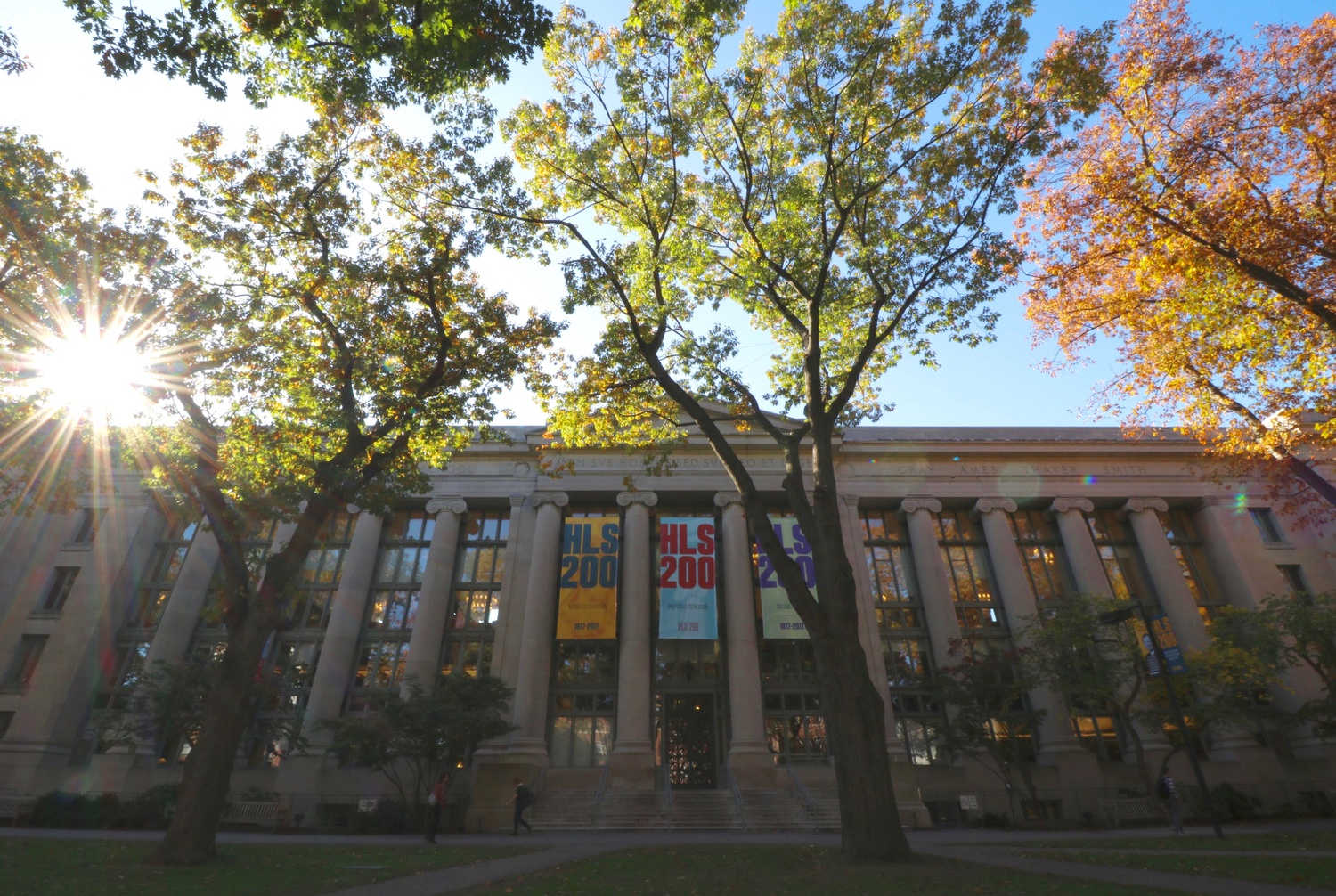
News
News Flash: Memory Shop and Anime Zakka to Open in Harvard Square

News
Harvard Researchers Develop AI-Driven Framework To Study Social Interactions, A Step Forward for Autism Research

News
Harvard Innovation Labs Announces 25 President’s Innovation Challenge Finalists

News
Graduate Student Council To Vote on Meeting Attendance Policy

News
Pop Hits and Politics: At Yardfest, Students Dance to Bedingfield and a Student Band Condemns Trump
Harvard Law School Increasingly Favors Applicants With Real-World Work Experience

If you want to get into Harvard Law School, you should probably spend some time working in the real world before you apply to hit the books in Cambridge.
Law School Assistant Dean for Admissions and Chief Admissions Officer Kristi L. Jobson ’06 said in an interview that the school is placing a greater emphasis on applicants' work history than it did in the past. In recent years, the vast majority of successful Law School applicants have boasted at least one year of work experience. Eighty-two percent of this year's incoming first-year class worked for at least 12 months prior to starting school, Jobson said.
“One thing that we continue to be interested in, for your reference, is work experience,” said Jobson, who graduated from the Law School in 2012. “When I was a 1L, my class was almost 60 percent straight from college. It's almost a flip of what it used to be."
Jobson said the shift came when Law School administrators noticed that students who had worked before coming to the Law School were more likely to excel than their peers who had not done so.
“What the school as a whole would begin to recognize was that individuals with work experience outperformed their peers on most any measure — academic performance in law school, leadership outside the classroom, job opportunities that were available to them,” Jobson said.
Plus, Jobson said, many applicants with work experience were able to accomplish “amazing” things before formally beginning their legal education.
“People do all sorts of incredible things before they come to Harvard Law School, and so, when you are reading an application from an individual with work experience, you naturally do find them very compelling,” she said.
Another indication of the Law School’s newfound taste for students who have immersed themselves in the working world is in its budding Junior Deferral Program. Launched in 2014, the JDP program allows undergraduate students to apply to the Law School as college juniors. If admitted, the students must take at least a two-year gap between college graduation and Law School matriculation — during which time they are encouraged to work or to study.
Last year, the Law School’s JDP program opened its admissions process to juniors at any college or university. Previously, it was an option only for juniors at Harvard.
The Law School has yet to release admissions statistics specifically for the JDP program. But Jobson said Harvard was the most highly represented school among admits.
“Not a surprise — the Harvard College students who applied had known that JDP was an option since their freshman year because at this point it's a more mature pilot at Harvard College versus a student at any other institution,” Jobson said. “We're not releasing either the admission rate with the Junior Deferral Program or the number of applicants or the number of admits because at this point it is a fledgling pilot program... We are interested to see how it develops over time.”
Correction: Sept. 14, 2018
A previous version of this article incorrectly indicated that Harvard Law School had accepted two JDP classes whose members hailed from around the country. In fact, the Law School has accepted only one JDP class whose members attended schools across the nation.
—Staff writer Aidan F. Ryan can be reached at aidan.ryan@thecrimson.com. Follow him on Twitter @AidanRyanNH.
Want to keep up with breaking news? Subscribe to our email newsletter.
From Our Advertisers

Over 300+ courses at prestigious colleges and universities in the US and UK are at your disposal.

Where you should have gotten your protein since 1998.

Serve as a proctor for Harvard Summer School (HSS) students, either in the Secondary School Program (SSP), General Program (GP), or Pre-College Program.

With an increasingly competitive Law School admissions process, it's important to understand what makes an applicant stand out.

Welcome to your one-stop gifting destination for men and women—it's like your neighborhood holiday shop, but way cooler.

HUSL seeks to create and empower a community of students who are seeking pathways into the Sports Business Industry.
